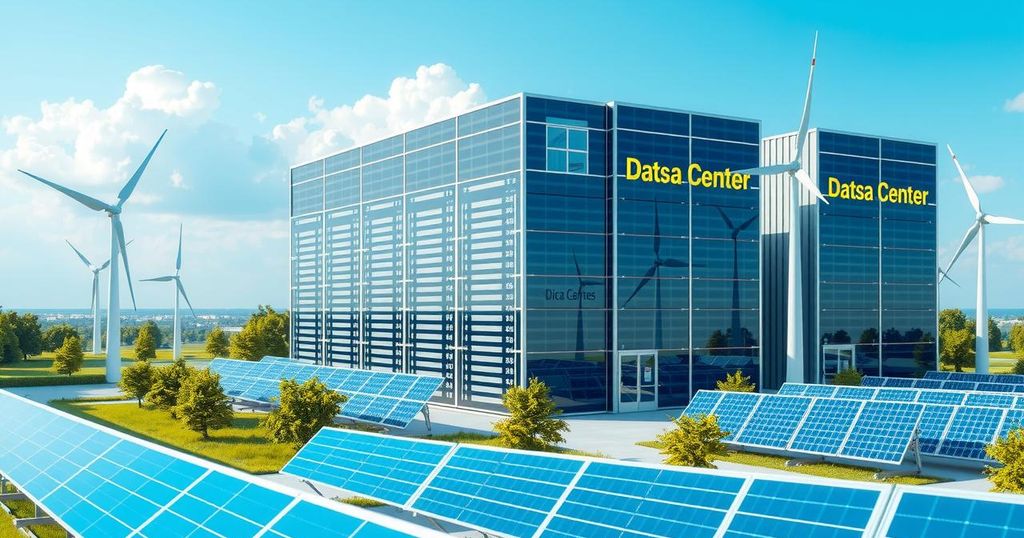AI’s Hidden Footprint: The Energy Crisis Looming Ahead
The IEA warns that AI is significantly increasing global energy consumption, with data centers projected to double energy use in five years, affecting climate targets. Current data centers consume energy equivalent to 100,000 households, and emissions are on the rise, posing challenges despite potential efficiencies AI could introduce. Critics argue for clearer regulatory measures to mitigate AI’s energy impact and drive sustainability.
The rise of artificial intelligence (AI) presents a dual-edge sword—while sparking innovation, it also triggers soaring global energy consumption. The International Energy Agency (IEA) released a pivotal report forecasting that energy usage in data centers, particularly those housing AI systems, is set to double in just five years and by 2030 may represent around 3% of global electricity. AI is projected to contribute over half of this dramatic increase.
Currently, cutting-edge data centers consume enough energy to power 100,000 households. The IEA warns that as AI models progress in complexity, future hyperscale data centers could consume up to 20 times more energy, putting immense pressure on power grids and environmental targets. Already, these facilities are on track to produce 1.4% of the world’s combustion-based emissions, nearing the carbon footprint of the aviation industry, and that figure excludes the emissions from construction and equipment production.
While the IEA anticipates that by 2030, around 50% of data center energy will come from renewable sources, the remaining supply will rely on coal, nuclear, and new gas-power facilities. Critics argue that this scenario is far from sustainable, revealing the hidden environmental costs of AI’s expansion.
Interestingly, the IEA suggests that AI could play a significant role in creating energy efficiencies, including improving power grid operations, enhancing productivity at solar and wind farms, detecting infrastructure leaks, designing optimized transportation networks, and sourcing sustainable materials for technology. However, the benefits may be minimal unless governments implement robust climate-focused policies and incentives, determining how AI is utilized.
Critics assert that the IEA’s findings might overlook the urgency of the energy crisis caused by AI. Researcher Alex de Vries believes the IEA is underestimating future AI energy consumption and its implications for global climate objectives. Moreover, Luxembourg’s energy minister, Claude Turmes, accuses the IEA of downplaying risks to appease powerful tech entities, lamenting their lack of clear guidance for governments on mitigating the threats posed by massive data centers.
As AI continues to permeate daily life, there’s a pressing necessity for thoughtful and strategic use of computing power. Without adequate oversight, the energy-intensive nature of AI could overshadow its potential as a solution to climate challenges.
The energy demands of AI and data centers are escalating, presenting serious climate challenges as noted by the IEA. While AI has the potential to drive efficiencies in energy use, it’s crucial for governments to implement stringent regulations to mitigate its environmental impact. As concerns about energy consumption grow, intelligent and sustainable management of AI resources will be necessary to ensure that technology serves as a solution rather than a burden on the planet.
Original Source: www.techtimes.com




Post Comment